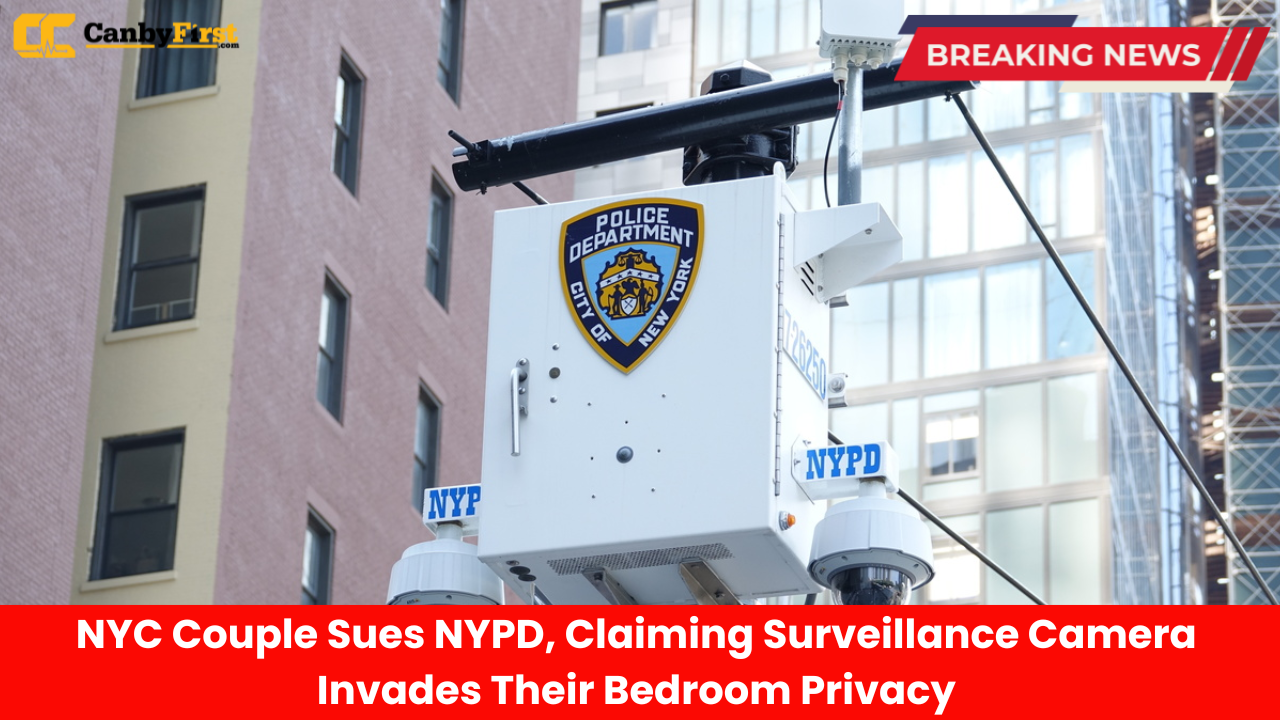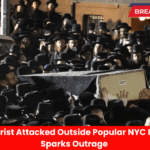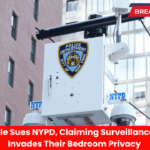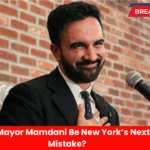New York, US:A Manhattan couple has filed a lawsuit against the New York Police Department, alleging that a surveillance camera installed near their apartment window is pointing directly into their bedroom, violating their right to privacy and creating constant fear of being watched.
Couple Says Camera Faces Their Home
According to the lawsuit filed this week in state court, the couple residents of an apartment building on Manhattan’s Lower East Side claims that the NYPD-operated camera is positioned in such a way that it looks straight into their private living space. They argue that this placement goes far beyond legitimate street surveillance and constitutes an unlawful invasion of privacy.
The plaintiffs, both professionals in their thirties, say they first noticed the issue several months ago while adjusting their window blinds. They allege they could see a glint of the camera lens directed toward their bedroom window. Since then, they claim to have lived under a constant sense of unease, fearing that intimate moments inside their home may have been recorded or monitored without consent.
Also Read
Lawsuit Alleges Violation of Privacy and Emotional Distress
The civil suit accuses the NYPD of violating constitutional rights, including protections against unreasonable searches under the Fourth Amendment, and causing severe emotional and psychological distress. The couple’s attorneys describe the situation as “an intrusive and unjustified breach of domestic privacy.”
In their complaint, they are seeking monetary damages and a permanent injunction ordering the department to relocate or adjust the angle of the camera. The filing also requests an independent review of NYPD’s neighborhood surveillance protocols, arguing that cameras should never intrude into residential spaces.
NYPD Responds
An NYPD spokesperson declined to comment on the pending litigation but stated that all surveillance cameras operated by the department are “intended exclusively for public safety purposes” and are “not directed toward private residences.”
However, privacy advocates say the case raises long-standing concerns about the expansion of public surveillance in densely populated areas like New York City. With thousands of police and city-installed cameras now monitoring streets, crosswalks, and public facilities, critics argue that the growing network often crosses ethical and legal lines.
A Broader Debate on Surveillance and Privacy
Legal analysts suggest the lawsuit could become a test case for how modern surveillance tools intersect with residents’ rights to privacy in urban settings. Cities nationwide have increasingly relied on security cameras, facial recognition technology, and automated video analytics to deter crime, often leading to debates about oversight and transparency.
“If these allegations are accurate, it shows a troubling lack of boundaries when it comes to how surveillance systems are deployed in civilian spaces,” said one civil liberties attorney familiar with similar cases. “No one should have to live with the feeling of being watched in their own bedroom.”
Technology experts also note that even small adjustments in camera angle or lens type can significantly expand the range of surveillance, capturing details inside private homes that were never meant to be recorded.
Neighbors Express Concern
Residents in the same neighborhood shared mixed reactions. Some defended the NYPD’s use of cameras as important for safety in an area that has seen incidents of petty crime. Others, however, expressed deep concern about privacy violations.
“I understand the need for security, but if what they’re saying is true that camera is literally facing into their home that’s unacceptable,” said one nearby resident. “We all deserve to feel safe without being watched.”
The couple has reportedly tried multiple times to contact local authorities before resorting to legal action. They claim their complaints went unanswered or were dismissed as routine police equipment placement.
What Happens Next
The case now heads to New York State Supreme Court, where a judge will evaluate whether the couple’s constitutional and privacy claims are valid enough to proceed to trial. Legal observers expect the NYPD to argue that the camera faces a public space and is part of a lawful surveillance effort.
If the court finds even partial merit in the plaintiffs’ claims, it could set a precedent for how municipalities nationwide must balance safety monitoring with citizens’ right to private domestic life.
Privacy organizations across the country are watching the case closely. Some see it as an opportunity to redefine limits on government surveillance in the age of high-definition cameras and advanced monitoring systems. Others fear that an overly broad ruling might hinder legitimate crime prevention efforts.
Growing Public Concern
The incident has renewed local discussions about camera regulation and transparency. Advocacy groups have called for stricter policies requiring law enforcement agencies to publicly disclose camera locations, limits, and data storage practices.
Meanwhile, the couple says their primary goal is simply to regain peace of mind. “We just want to feel safe and private in our own home,” their lawyer stated in a recent filing. “That’s a basic expectation every citizen should have.”
Conclusion
As the case unfolds, the lawsuit underscores a deepening tension between modern surveillance and individual privacy. For New Yorkers living under a web of city cameras, the outcome may reshape not only one couple’s sense of safety but also the boundaries of personal privacy in one of the world’s most watched cities.












